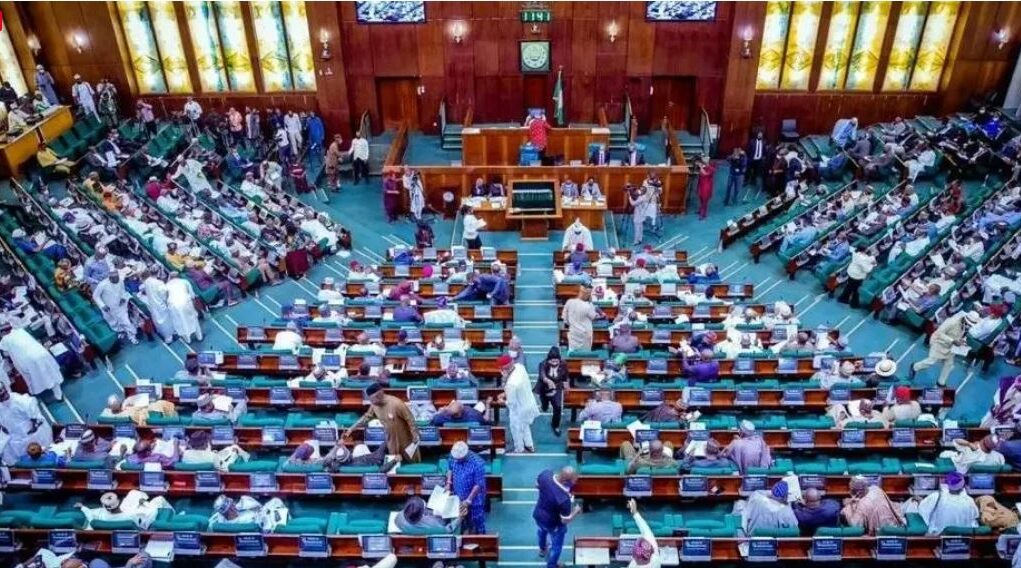
The House of Representatives has rescinded its decision on three gender-related constitution alteration bills.
Hassan Fulata (APC, Jigawa) on Tuesday moved a motion to rescind the House’s decision on the following bills: a bill to expand scope of citizenship by registration, affirmative action for women in political party administration and provision for criteria to be an indigene of a state in Nigeria.
The extra seats for women in legislative Houses and the 20 per cent quota for women for appointment into federal and states cabinets were not listed in the motion by Mr Fulata.
The rejection of the five bills had triggered protests at the entrance of the National Assembly, as women groups called for the rescission by the two legislative arms.
As of the time the motion was moved on Tuesday, some women were at the entrance of the National Assembly, protesting the anti-women stance of the lawmakers.
The bills…
The bill seeks to amend section 26 (2a) of the 1999 constitution by opening citizenship registration to male and female.
This means that if the bill is passed, foreigners married to Nigerian women can apply for Nigerian citizenship.
Similarly, the other bill seeks to alter Sections 31 and 318(1) (the Interpretation Section) of the 1999 Constitution to allow a woman to become an indigene of her husband’s state after at least six years of marriage
Furthermore, Section 223 of the 1999 Constitution to provide 35 per cent affirmative action to ensure women occupy at least 35 per cent in political party and appointive positions at the federal and state levels.
Moving the motion, Mr Fulata asked that the House should suspend its rules to allow it to rescind its earlier decisions on the bills.
“In line with our extant rules, I move that we suspend our extant rules to rescind our decision in respect of these three bills and recommit to the Committee of the Whole for reconsideration,” he said.
Rescinding for the good of the country —Gbajabiamila
The Speaker, Femi Gbajabiamila, noted that the move by the House is against the established tradition of constitution amendment.
He, however, said the lower chamber in its wisdom decided to revisit the bills for the good of the country.
He noted that the bills will be voted on by the House in the next phase of the constitution alteration exercise.
Mr Gbajabiamila said it will seek harmonisation with the Senate in the event that the lower chamber pass the bill.
“Last week, the House voted on the constitution amendment. There are issues arising therefrom and the House in its wisdom has decided to take a cause of action for the good of the country and that action is to rescind three of the decisions that were taken that day and after the rescission, we will list them on the next set of amendments coming up,” he said.
“If we still at that point have a difference with the Senate, we will go for harmonisation. Now harmonisation may not be the practice when it comes to constitution amendment because I have heard people argue here and there,” he said.
Mr Gbajabaimaila said he relied on Section 5 of the Constitution, which allows the House to regulate itself.
“But the constitution I believe under section 5, allows the House to regulate its own procedure and we will be relying on the provision of the Constitution to harmonise the differences between us and the Senate and hopefully this will go through,” he said.
Meanwhile, the House held an executive session before the commencement of plenary on Tuesday.
Briefing journalists after plenary, Babajimi Benson (APC, Lagos) said the lawmakers had a heart-to-heart conversation on the bills.
He said the House was not under pressure, despite the protests.
According to Mr Benson, the blocking of the roads by the women had no impact on the decision of the parliament.


















































